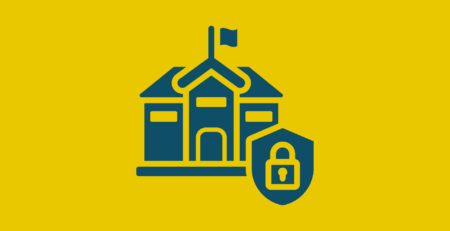Possip CEO & Founder Shani Dowell shares important communication tips to help keep your schools safe.
Schools have a weighty responsibility towards school safety – both for students and staff.
An important part of school safety is parent communication. Schools are often busy keeping kids safe, communicating with police, and responding to needs. This means communicating with parents often comes last, if at all.
However, when schools don’t communicate with parents proactively and transparently, distrust breeds fast. Eventually what replaces communication is fear, rumors, and frustration from parents.
Although full transparency isn’t always possible due to privacy rights or other legal implications, there are ways to communicate.
Here are some top tips for safety and security communication:
1. Have clear school safety protocols for parents, students, and teachers
Make sure each lockdown and safety scenario has a plan for teachers, students, and parents. Create clarity around what will happen if one of these emergency situations occurs. Make sure all parents know there is a detailed plan and all stakeholders know the plan. Finally, make sure the plan is practiced.
Send these protocols home in a variety of ways and post them on your website. Within these protocols, include the plan for parent and family communication. Help parents understand when and how they will receive information if one of these emergencies occurs to cut down on misinformation and anxiety.
Practice procedures through frequent drills. Then follow up with staff about what went well and what could be improved.
One additional benefit of sending safety protocols home is that it allows for parents to talk to their students about the drills and reinforce school expectations during those safety situations.
Note: do NOT have a drill without giving parents notification of the types of drills you’ll conduct. The younger the kids are, the more important it is to make sure parents are looped in before having any atypical drills.
Here are a few of the safety procedures you should have clear protocols around that are sent home to parents:
- Fires
- Bomb threats
- Severe weather
- Active shooter
- Evacuation required
- Outside danger near school campus
2. Share security and safety details present in your school
Communicating with the community about extra security and safety measures you have in place will build trust and let your parents know you are going above and beyond to keep their child safe. Some questions to consider regarding communication to send home to parents:
- Do you have a police presence at different times of the day?
- Can you get police extra presence if needed?
- Do you have locks on windows and doors?
- How often do you practice drills?
- Do you train teachers on safety protocols?
- What do you do to reflect on the drill effectiveness?
- Do you have clear rules around student behavior and violence?
- How often do you improve the school safety plan?
- What materials and supplies are contained in classrooms if an emergency occurs?
- Do you have a district or school leader who specializes in safety?
These are just a few questions that parents would be thankful to know about your school campus safety information.
3. Allow for questions and feedback from parents
The end of the year is a good time to revisit your safety plans and make any upgrades to them. During this process, school leaders can invite parents or community members into the planning process. Families and community members can ask questions, share concerns, and give information on any security or safety features they want to see.
Having parents in the conversation can cut down on misinformation and give them an open time to ask questions and get correct answers.
4. Provide easy ways to report safety concerns
Parents and students should have a way to report safety concerns that they hear about or notice. Of course, using Possip is one method that schools can use for giving parents a way to do this. It could also be an online form to fill out, a report to complete, or even just a specific person to email.
Parents may want to share concerns about a specific entrance not having properly working locks, seeing suspicious activity, or concerns a student talk to them about a classmate or social media content. Additionally, students may want to share things directly with the school that they feel unsafe about. Giving students a clear way to do this will increase feelings of safety and protection.






